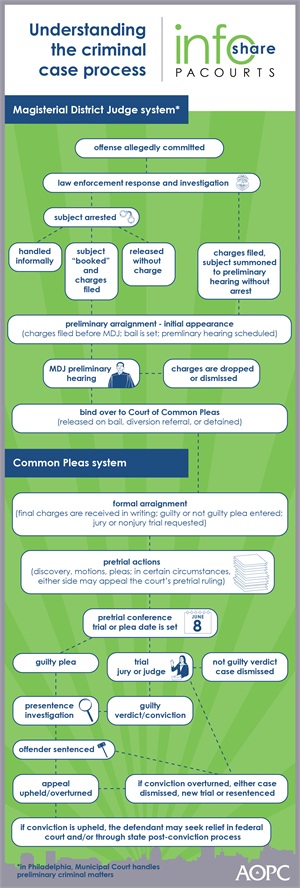News
Court 101: Understanding the criminal case process

News Article
March 18, 2016
A criminal charge alleges that a violation of the criminal law – an offense against the community – has occurred. An individual can be charged with murder of the first degree, murder of the second degree, a felony, a misdemeanor or a summary offense.
Murder and felony charges, such as arson, carry the most severe penalties, while misdemeanors and summary offenses carry lesser penalties. If the prosecutor proves to a jury or the judge hearing a case without a jury that a defendant is guilty beyond a reasonable doubt, that person stands convicted and can face penalties, including prison, fines or probation. If the prosecutor does not prove to the fact finder that a defendant is guilty beyond a reasonable doubt, the defendant is acquitted.
The course of a criminal case is outlined in the infographic below. A high-resolution file of the graphic is available for download at www.pacourts.us under Media Resources.

PA Courts InfoShare is a bi-weekly product of the Administrative Office of Pennsylvania Courts (AOPC) that visually highlights the work of the courts with interesting data and statistics obtained through the judiciary’s case management systems, interactive dashboards and other research. Reproduction is permissible with source cited.
# # #
Media contact: Kimberly Bathgate, 717-231-3331
